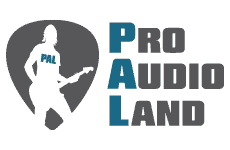
Copyright is the protection given to creators in order to protect their work. For songwriters, this form of protection is integral to keeping their art from being stolen or used without their permission. While many of us are well aware that copyright protection exists, few know the specifics, such as what sort of things are allowed and what is not. If you're serious about being a recording artist, it is crucial that you are well aware of the power of the copyright laws and their limitations.
Copyright protection can help the songwriters to get paid for their creations. An understanding of the copyrights can help them to protect their works in a better way. Copyright can offer legal protection to the creative works for a temporary period of time. With a copyright, you will have the exclusive rights for the followings.
• You can make copies of your own creation.
• You can distribute the copies of your creative works.
• You can publicly perform your work anytime you want.
• You can also display your work, but this right is only restricted to the visual artists. It is not applicable for the songwriters or musicians.
• You can also digitally broadcast the sound recordings of your work.
Though these copyrights ate not considered absolute, but still people will ask for your permission if they want to use your copyrights. If they do not follow it, they might be subjected to copyright infringement. In that case, you have the right to sue them. If you have a copyright of your song, then no one can sing it in a public place without your permission. Even any television show or radio cannot use your copyright song without your permission. This is illegal and is subject to punishment. If you are a musician and you perform the song written by others then you need the permission of the songwriters to do so.
How to follow the Copyrights
It is obvious that you can observe all the activities and can notice that who is violating your copyrights. A number of the organizations are there to accomplish this task. In the USA, ASCAP, SESAC, BMI, The Harry Fox Agency, and Sound Exchange are there to handle the issue on your behalf.
How to get a Copyright
The procedure is simple. You just need to register your creative works under with the library of the songs. Once it is registered, you will get the copyright for the song. But for the registration, your work needs to be genuine and original. Any copy of other’s work cannot help you to get registered.
What about the copyright for other’s work?
Anyone can get copyright for the other’s work for the distribution purpose. For this reason, you will need a mechanical license. This license offers you the right to record other’s song and to distribute the phonorecords having the song. The original owner of the song would have distributed the phonorecords having that song. Once it is done by the owner, anyone can do this with a mechanical license.
The mechanical license cannot offer you the right to make major changes in harmony, melody, or lyrics. You are only allowed to make limited changes that are restricted to the change of the key or tempo and you can also present the song in a different manner. That is what you can expect from a mechanical license. For major changes, you might need some additional permission. There are many requirements to get the copyright of the other’s works. In some cases, you might need to pay the royalty, and in other cases, you just need the permission.
Can it protect forever?
Copyright cannot protect you forever. It can protect your creative works for a limited period of time. For the works between 1923 to 1978, it can offer protection for ninety-five years. For the works of 1978 or after, you will get the copyright protection for the life period plus the seventy years.
If you want to get protection for your creative works through the copyright, then you should inquire about the facilities and the requirements. You can also research about who can use your copyright and what will be the requirements for the use. As a musician or a songwriter, it's important that you know all the rights and limitations of copyright protection. Not only will this help you better defend your hard work, it may also keep you from landing in legal trouble if you find yourself on the other side of the coin!
Your Turn to Sound Off!
Have you ever copyright protected a song? If so, how was the process?
Let us know in the comment section below!

